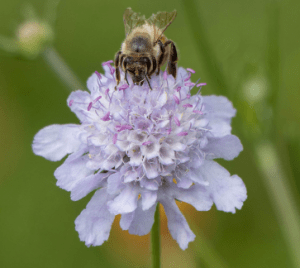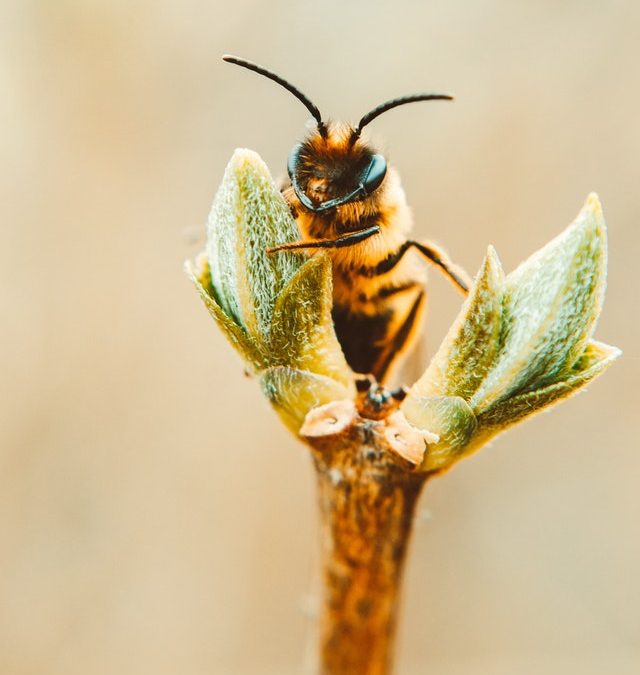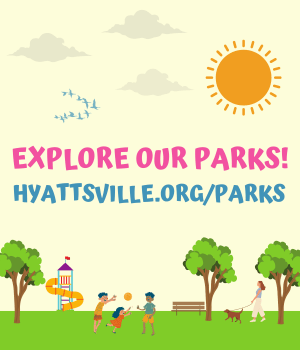By Alyssa Kraus

officially certifying the city as a bee-friendly community. JULIA NIKHINSON
The City of College Park has formed a new committee as the first step in officially certifying the city as a bee-friendly community. The Pollinator Committee, so named in a Feb. 10 meeting, currently meets virtually each month, with the goal of making College Park a sustainable home for pollinators through gardening, outreach and advocacy.
Bee City USA, the organization that certifies cities as bee-friendly, was founded in 2012 to help reverse pollinator declines. According to Bee City USA’s website, 85% of flowering plants and 67% of agricultural crops rely on pollinators. Some 40% of pollinating insects are at risk of extinction, due to a variety of factors, including climate change and pesticide use.
“Because of the population decline in … butterflies, insects, [and] birds, the city and city council thought that it was important … to address these issues, to increase awareness in the city … and develop some activities that will promote education and interactive volunteer projects,” Brenda Alexander, assistant director of the College Park Public Works Department and staff liaison, said during the committee’s February meeting.
Bee City USA’s certification process provides a framework to conserve pollinators. Interested applicants must meet a series of requirements, the first of which is establishing a committee.
The College Park City Council approved the move to become a Bee City USA affiliate in November 2019 and established the committee, which has held three virtual meetings to discuss Bee City USA’s commitments and the city’s plans for meeting them.
The commitments, which are listed in a contract signed by applicants, detail the certification process. After creating a pollinator committee, the city must develop plans to create or enhance pollinator habitats each year. To meet this commitment, the committee compiled a list of possible locations for pollinator gardens in College Park.
“Hopefully this spring we will get an opportunity to get a bee garden into the ground,” Alan Hew, who chairs the committee, said. “We shall see what our challenges are with the pandemic at the time.”
Although locations have not been confirmed, the committee hopes to create two gardens this year. They have also developed a list of native plants that will be ideal for the gardens. The list will be made available to residents on the city’s website.
Hew said that the committee will seek volunteers to establish and maintain the gardens. The committee encourages homeowners to plant some native plants in their own yards, too.
“There’s much more space on private property than there is in public space,” Alexander said. “So, in addition to creating public gardens, there will be a big component for residents to create gardens on their own private property.”
Along with creating safe habitats for pollinators, Bee City USA affiliates are required to reduce the use of pesticides, incorporate pollinator-conscious practices in city policies and host pollinator awareness events. College Park’s committee plans to hold an event in June to celebrate National Pollinator Week, providing pandemic-related restrictions ease by then. Members also hope to create pollinator-friendly traditions such as No Mow May, a month-long period during which homeowners step back and allow their yards and gardens to simply flourish as natural habitats.
The City of College Park’s Pollinator Committee will continue to meet virtually on the second Wednesday of every month. In March, the committee plans to discuss interactive volunteer projects and the prospect of establishing a garden at City Hall.
“I’m hoping that once we get our committee up and going, we can serve as an example … [to help] this movement spread in this area,” Hew said.








